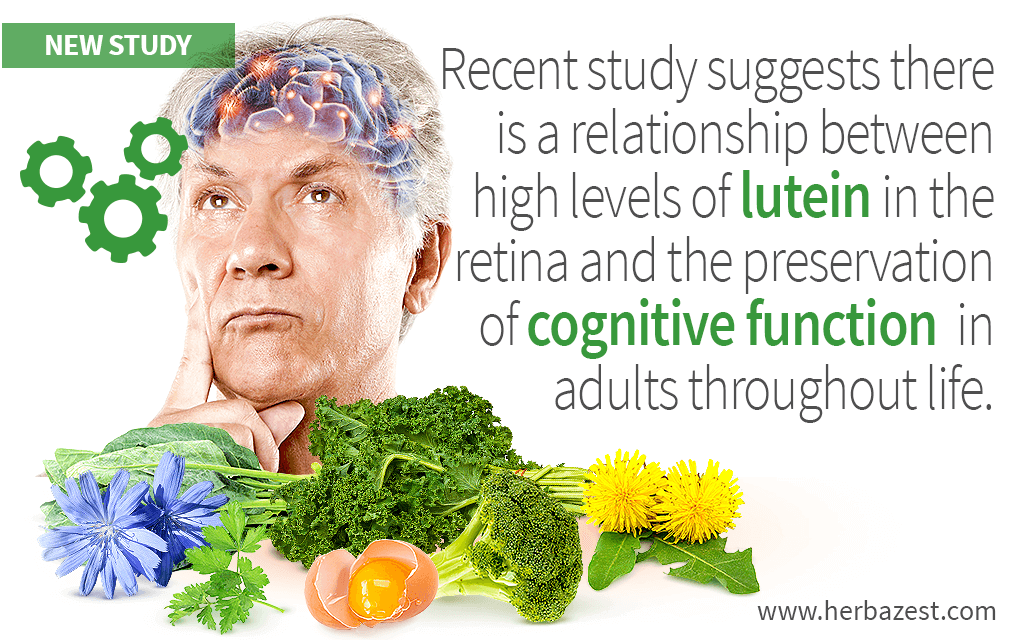Lutein is a member of the carotenoid family and one of the most common substances occurring in nature, mainly in egg yolks and leafy greens like kale, spinach, parsley, dandelion, broccoli, and chicory. Carotenoids are pigments with great antioxidant benefits, and lutein - in combination with zeaxanthin - has proven particularly effective for eye health. The intake of six daily milligrams of lutein and zeaxanthin has been associated with reduced risk of age-related macular degeneration (AMD). However, recent findings suggest that lutein may also play a key role in preserving brain function, slowing down cognitive decline that starts as early as mid-adulthood.
The Study
The study, published in Frontiers in Aging Neuroscience (June 2017) and led by a team of researchers at the University of Illinois, was conducted on 60 healthy adults between the ages of 25 and 45 years old. All participants were tested for retinal carotenoid concentration and brain functions, including selective attention and inhibition. By comparing the results of these tests, the research team's goal was to determine whether lutein levels influence age-related cognitive decline.
The Results
When it comes to response to attention and inhibition, the youngest adults scored significantly higher than the older ones. When these results were compared with the concentration of eye carotenoids in the 60 participants, a relationship was established. Those who performed better in the cognitive tasks also displayed greater levels of lutein in the retina.
What Does This Mean?
Although further investigation and larger samples are necessary in order to corroborate the findings, these promising results suggest that lutein may play a major role in preserving brain function and that its deficiency throughout life not only contributes to macular damage, but also may accelerate cognitive decline. In contrast, the natural effects of aging may be diminished in individuals with greater levels of this carotenoid, which are typical of a balanced diet that includes high amounts of green, leafy vegetables.
Sources
- Frontiers in Aging Neuroscience, The Role of Retinal Carotenoids and Age on Neuroelectric Indices of Attentional Control among Early to Middle-Aged Adults, 2017
- Nutrients, Dietary Sources of Lutein and Zeaxanthin Carotenoids and Their Role in Eye Health, 2013
- University of Rochester Medical Center, Lutein




